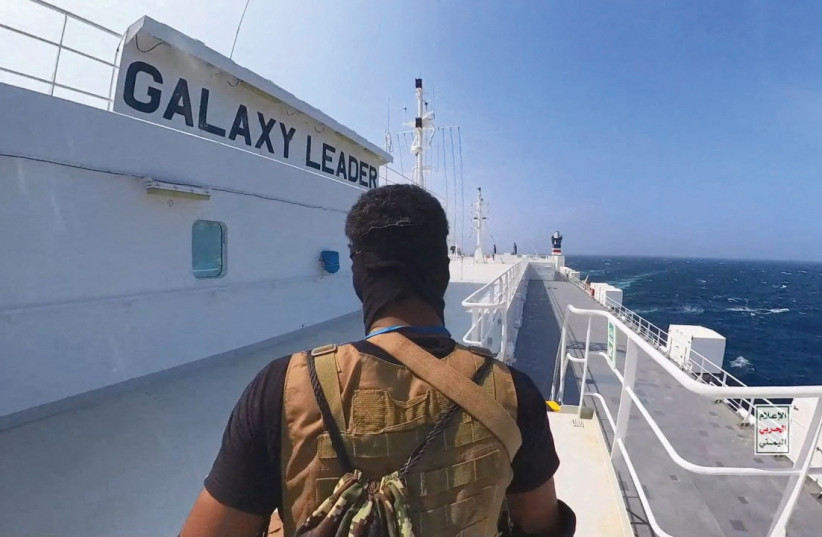Waves of attacks by the Iran-backed Houthi group in Yemen may not be ultimately targeting US warships, even though the US Navy has responded by shooting down drone aircraft and missiles in recent weeks, the Pentagon said on Monday.
The United States has blamed the Houthis for a series of attacks in Middle Eastern waters since war broke out between Israel and the Palestinian terrorist group Hamas on Oct. 7.
In the latest incidents, three commercial vessels came under attack in international waters in the southern Red Sea on Sunday. The Houthis acknowledged launching drone and missile attacks against what they said were two Israeli vessels in the area.
The Carney, a US Navy destroyer, shot down three drones on Sunday as it answered distress calls from the commercial vessels. The US military says the three vessels were connected to 14 separate nations.

"The Carney took action as a drone was headed in its direction. But again, we can't assess that the Carney at this time was the intended target," said Pentagon spokesperson Sabrina Singh.
The United States and Britain have condemned the attacks on commercial shipping in the Red Sea, blaming Iran for its role in supporting the Houthi terrorists behind them.
The Houthi group, which controls most of Yemen's Red Sea coast, had previously fired ballistic missiles and armed drones toward Israel and vowed to target more Israeli vessels.
US national security officials are concerned about the risk of a sudden, deadly regional escalation as the Israel-Hamas war rages, given the Houthi attacks in the Red Sea and separate attacks by Iran-backed militia against US troops in Iraq and Syria.
US military response to Houthi threat
The Pentagon says it killed five terrorists in Iraq on Sunday as they prepared to attack US troops with a drone.
Singh stopped short of using language that could suggest any imminent US retaliation against the Houthis.
"There have certainly been irresponsible actions taken by the Houthis, especially when it comes to targeting commercial vessels that are transiting international waters," she said.
Asked if the United States might retaliate, Singh said: "If we decide to take action against the Houthis, it will of course be at a time and place of our choosing.
"I won't get ahead of the (defense) secretary. I won't go ahead of the president on any actions. But we always reserve the right to respond," Singh said.
Yemen erupted in civil war after the Houthis, members of the Zaydi sect of Shi'ite Islam, seized Sanaa, the capital, in 2014. A Saudi-led coalition intervened the following year.
Although a UN-brokered ceasefire collapsed in October 2022, Yemen has enjoyed relative calm as the Houthis and Saudi Arabia negotiate a settlement.
The White House has left open the possibility of potentially designating the Houthi rebel group a terrorist organization, which would reverse one of the Biden administration's first acts after Joe Biden took office as president in January 2021.
